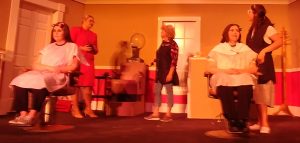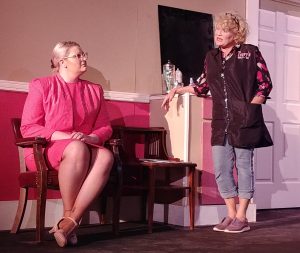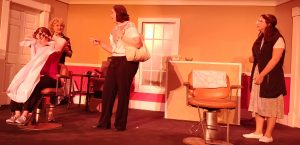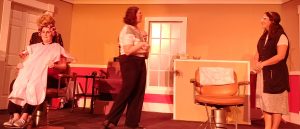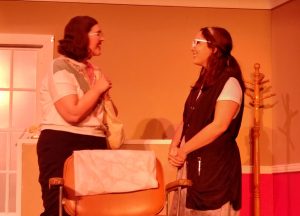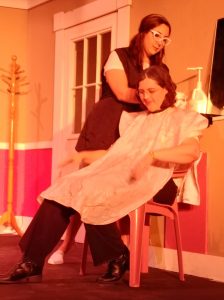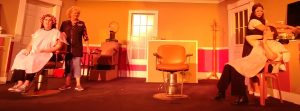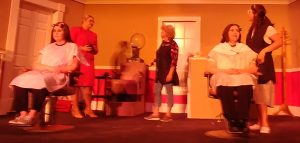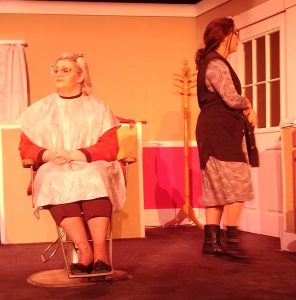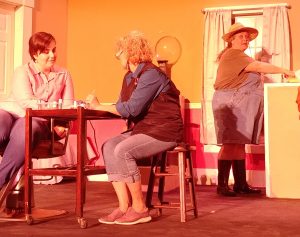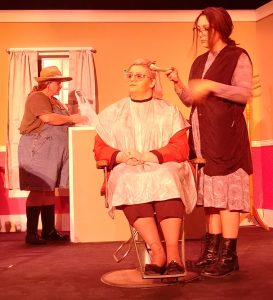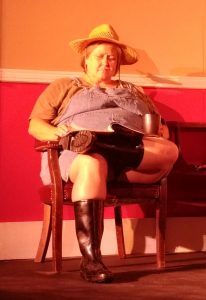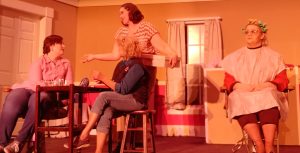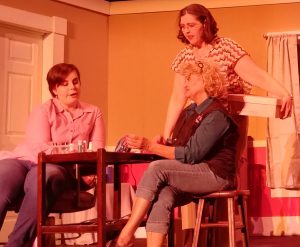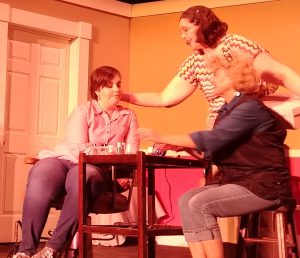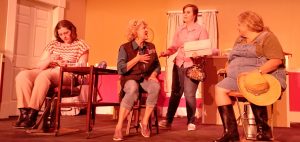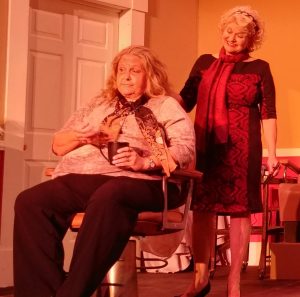SHORT TAKE:
Adam Sandler semi-slapstick about a working-stiff middle class Dad trying to provide the kind of wedding for his daughter which will impress the family of his wealthy son-in-law to be.
WHO SHOULD SEE IT:
Only for adults and then only for those who do not take offense at tasteless humor, raunchy sight gags, strippers, or bad language.
LONG TAKE:
The pickings were very thin this week at the movie theater so I decided to think outside the box and try a Netflix original.
There's an old Jewish folk tale called "It Could Always be Worse" wherein a poor farmer, grieved that his house was too small and his pantry too bare, seeks advice from his Rabbi. The Rabbi advises him to invite his lazy brother to come visit and open his house to his obnoxious neighbors and demanding friends. Reluctantly the farmer went home and told his wife, who, desperate to cheer her husband up, agreed.  Soon every room in the house was taken up with noisy people who raided their pantry and slept in their beds and on their sofas and sprawled on their floor. Soon losing his mind the farmer returned to the Rabbi.
Soon every room in the house was taken up with noisy people who raided their pantry and slept in their beds and on their sofas and sprawled on their floor. Soon losing his mind the farmer returned to the Rabbi.
This time the Rabbi shocked the farmer by advising he bring all of his animals into the house as well – the chickens, the goats, the cow, the family dog, and all the cats.  Soon even the obnoxious neighbors were complaining about the crowding and having their toes stepped on by cow hooves, the mooing and the barking in the middle of the night, and the smell.
Soon even the obnoxious neighbors were complaining about the crowding and having their toes stepped on by cow hooves, the mooing and the barking in the middle of the night, and the smell.
After a full week the farmer was at his wits end and more miserable than he was before. Angrily, the farmer returned to the Rabbi who simply smiled and said now go throw everyone and everything out. Send your neighbors back to their own homes, kick your brother out, and put the animals back in the barn.
After sweeping up behind all of their departed guests the farmer and his wife discovered, much to their astonishment, how much bigger their house was, and how much more food they had.
At the height of the Rabbi's lesson for the farmer, while the house was full of neighbors and relatives and animals, Kirby, the visiting father of the groom, in the movie The Week Of, would have noticed little difference between staying at the farmer's house or staying at the home of Kenny, the father of the bride.
SPOILERS

In the premise of The Week Of, Kenny, played by Adam Sandler, is a working stiff who makes a very modest living bringing dilapidated hotels up to passing health inspector levels. Despite his limited resources, he is determined to pay for his oldest daughter's wedding without the proffered help of the much wealthier  Kirby, played by Chris Rock.
Kirby, played by Chris Rock.

Unable to provide adequate housing for the multitude of guests and finding the hotel completely unsuitable despite his best efforts, many of the relatives on both sides end up staying at his modest-sized home. Amongst the participants are Seymour (Jim Barone – a real double amputee) his uncle, Noah his emotionally fragile cousin fresh out of rehab, 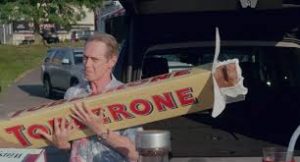 Charles (Steve Buscemi) his raunchy cousin, loud obnoxious elderly deaf ladies and the monster sized German Shepherd owned by one of his visiting kin.
Charles (Steve Buscemi) his raunchy cousin, loud obnoxious elderly deaf ladies and the monster sized German Shepherd owned by one of his visiting kin.
I normally do not watch this kind of movie and likely would have turned it off had I not been planning to review it. So watching to the end, imagine my shock to discover a tiny gem buried in the bottom of this pond full of less than subtle sex jokes and caricatures.
In classic Adam Sandler comic style, there's something to offend everyone. Sandler and Robert Smigel, the screenwriters, make fun of Jewish culture, the mentally ill, the physically disabled, and the elderly. It's hard to tell which is more cringey, the often crude and tasteless jokes or the fact that Chris Rock plays a straight man and is old enough to be someone who has a groom-aged son. 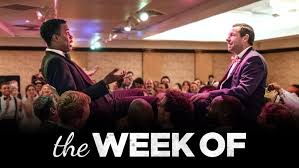 But somehow, The Week Of still manages to make all these characters approachable, even likeable, giving each moments that makes them relatable and human. Part of it, I think, is that even though the situations make fun of these vulnerable and sometimes inherently ridiculous people, Adam Sandler's Kenny treats them all with genuine affection and respect.
But somehow, The Week Of still manages to make all these characters approachable, even likeable, giving each moments that makes them relatable and human. Part of it, I think, is that even though the situations make fun of these vulnerable and sometimes inherently ridiculous people, Adam Sandler's Kenny treats them all with genuine affection and respect.
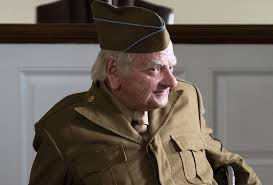 At different points in the movie, Kenny, literally, carries his legless Uncle Seymour around. Kenny never acts as though it is a burden. And this becomes an interesting analogy for the entire movie. Despite Kenny’s lack of financial resources, despite his pride, and despite his occasionally bad judgment, everyone looks to Kenny whenever there is a problem. He is the one with the heart to usually do what he genuinely believes is the right thing for his family, has the cleverness to get it accomplished, and the determination to see it through to the end no matter how ridiculous some of the plans are. It eventually becomes obvious that it is not just Seymour he cheerfully carries on his willing back.
At different points in the movie, Kenny, literally, carries his legless Uncle Seymour around. Kenny never acts as though it is a burden. And this becomes an interesting analogy for the entire movie. Despite Kenny’s lack of financial resources, despite his pride, and despite his occasionally bad judgment, everyone looks to Kenny whenever there is a problem. He is the one with the heart to usually do what he genuinely believes is the right thing for his family, has the cleverness to get it accomplished, and the determination to see it through to the end no matter how ridiculous some of the plans are. It eventually becomes obvious that it is not just Seymour he cheerfully carries on his willing back.
In a side note, despite the fact the story pivots around an interracial marriage, absolutely NO references are made to this, cliche or otherwise, and refreshingly, race is the ONLY thing about which Sandler does not shark up a cheap laugh. The race of the two families ends up merely being a convenience for the audience to help keep track of which of the dozens of characters are likely to be from which side of which family – like wearing different jerseys at a sports event or using shirts versus skins at a pickup game of basketball.
Chris Rock's character, Kirby, is an extremely successful cardiac surgeon who lives out of very swanky hotels with a succession of mistresses. Kenny on the other hand has three kids who he adores and dotes on, but for whom he can provide "only" a middle-class lifestyle. Kirby's life is reflected in the swanky hotels he stays in, his clean, quiet, organized, unencumbered, glass and steel life without distractions. Kirby's life, on the other hand, is cluttered, messy, noisy, and full of humanity, conversation, hugs, arguments, interactions and affection.
 Kenny is always there, always in the mix, always doing his best and keeping a calm, optimistic perspective on even the wildest moments. So – despite all of the epic fails in Kenny's attempts to provide for his daughter's wedding, despite: the leaky ballroom,
Kenny is always there, always in the mix, always doing his best and keeping a calm, optimistic perspective on even the wildest moments. So – despite all of the epic fails in Kenny's attempts to provide for his daughter's wedding, despite: the leaky ballroom, 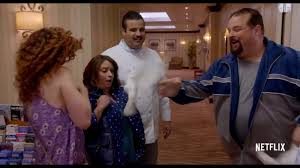 the poor choice of a magician to entertain the guests, using his 11 year old nephew as a wedding reception DJ, feeling shown up by the sumptuous wedding rehearsal dinner provided by Kirby, the crude bachelor party at a stripper trampoline exhibit, the death of one of the guests and a fire – it is Kirby who ultimately feels both overwhelmed and outclassed by the modestly resourced Kenny.
the poor choice of a magician to entertain the guests, using his 11 year old nephew as a wedding reception DJ, feeling shown up by the sumptuous wedding rehearsal dinner provided by Kirby, the crude bachelor party at a stripper trampoline exhibit, the death of one of the guests and a fire – it is Kirby who ultimately feels both overwhelmed and outclassed by the modestly resourced Kenny.
In one example, representatives of both families meet at the emergency room as a result (trying not to spoil TOO much) of one of the "high jinx".  Tyler (Roland Burch, III), the groom, feels responsible and Kenny explains to him how the outcome would have been worse had the group not done what they did, then embraces him comfortingly. Kirby can be seen in the background watching this exchange, and in a lovely but easily missed moment, Kirby realizes he is the outsider – that his son sought advice naturally and first, not from him, but from his future father-in-law, who seems to understand how everyone ticks.
Tyler (Roland Burch, III), the groom, feels responsible and Kenny explains to him how the outcome would have been worse had the group not done what they did, then embraces him comfortingly. Kirby can be seen in the background watching this exchange, and in a lovely but easily missed moment, Kirby realizes he is the outsider – that his son sought advice naturally and first, not from him, but from his future father-in-law, who seems to understand how everyone ticks.
 In a funny repeat motiff, whenever Kenny and his wife Sarah (Allison Strong, who played a very strange secretary in another and similarly themed Sandler movie, Click) disagree, both put on a happy face, retreat to their bedroom and audibly yell at each other, believing no one can hear them. One of the cousins asks one of Kenny’s younger children if they are getting a divorce. With the exhausted confidence that every child should have in their parents' marriage, he says, "They NEVER do."
In a funny repeat motiff, whenever Kenny and his wife Sarah (Allison Strong, who played a very strange secretary in another and similarly themed Sandler movie, Click) disagree, both put on a happy face, retreat to their bedroom and audibly yell at each other, believing no one can hear them. One of the cousins asks one of Kenny’s younger children if they are getting a divorce. With the exhausted confidence that every child should have in their parents' marriage, he says, "They NEVER do."
The wealthy Kirby ends up: sleeping on the floor, suffering the indignities of living with about 50 strangers at Kenny's house, being made fun of during a Parcheesi game in Kenny's asbestos infected basement, and is conscripted to help catch bats in one of Kenny's crazy plans to save face. Kirby as a result, comes to understand that the sum of all this lunacy is a close-knit family that will suffer through and with each other because of a love based on a lifetime of intimacy. Kirby threw money at every problem his family encountered. Kenny throws himself into the line of fire whenever someone in his family needed him.
 Kirby comes to realize that Kenny is indeed the much richer man. Realizing what a bad father and poor husband he has been Kirby apologizes to his ex-wife, begins to make amends with his children for his neglect, and looks forward to spending real time with his grandchildren. It’s a little like Mary Poppins for the Zohan crowd.
Kirby comes to realize that Kenny is indeed the much richer man. Realizing what a bad father and poor husband he has been Kirby apologizes to his ex-wife, begins to make amends with his children for his neglect, and looks forward to spending real time with his grandchildren. It’s a little like Mary Poppins for the Zohan crowd.
And meanwhile all this is set against some appropriately chosen Billy Joel songs. The ending genuinely had me choked up, and not just because I was sick to death of all the bad jokes. I can forgive a lot in a movie if it makes a good end. And I have to say that in spite of the raunchy humor, the borderline offensive caricatures, and the repetitive visual jokes – for the sake of the movie’s final couple of scenes ….. all is forgiven.
 I had the distinct pleasure of seeing the dress rehearsal of Robert Harling’s Steel Magnolias at ACTS Theatre. This comedy-drama is set in a 1980’s Louisiana beauty parlor and performed with great affection for the Southern women about whom this play revolves. The six ladies in the cast nailed it. Their timing, their energy, and their easy camaraderie the night before opening felt as though they already had several weeks of performances under their belts and were only tweaking for the weekend run.
I had the distinct pleasure of seeing the dress rehearsal of Robert Harling’s Steel Magnolias at ACTS Theatre. This comedy-drama is set in a 1980’s Louisiana beauty parlor and performed with great affection for the Southern women about whom this play revolves. The six ladies in the cast nailed it. Their timing, their energy, and their easy camaraderie the night before opening felt as though they already had several weeks of performances under their belts and were only tweaking for the weekend run. The blocking was artfully choreographed, allowing easy access to all the characters, always a concern with an ensemble cast.
The blocking was artfully choreographed, allowing easy access to all the characters, always a concern with an ensemble cast. The stage for Truvy’s Beauty Parlor was terrific in all its brightly lit, lightly cluttered and detailed natural realism. For anyone who has ever spent time in a beauty parlor, you could almost smell the familiar hair care products and feel the warm breath of the hair dryers ubiquitous to ladies’ salons.
The stage for Truvy’s Beauty Parlor was terrific in all its brightly lit, lightly cluttered and detailed natural realism. For anyone who has ever spent time in a beauty parlor, you could almost smell the familiar hair care products and feel the warm breath of the hair dryers ubiquitous to ladies’ salons. The director of this all female cast, Zach Hammons, is male. He, with his terrific back stage crew,
The director of this all female cast, Zach Hammons, is male. He, with his terrific back stage crew, 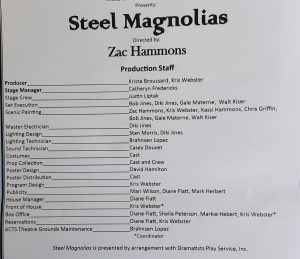 did a tremendous job with the style and technique of an experienced director.
did a tremendous job with the style and technique of an experienced director.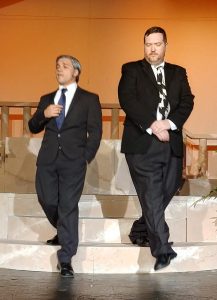 Veteran of the stage as an actor for many years and winner
Veteran of the stage as an actor for many years and winner  of performing awards,
of performing awards,  he is fairly new to the role of director.
he is fairly new to the role of director. I found his masculine behind-the-scenes influence a great advantage to this show, helping subtly inform the extensive, but never seen, male supporting players,
I found his masculine behind-the-scenes influence a great advantage to this show, helping subtly inform the extensive, but never seen, male supporting players,  whose actions are talked about, affect and are occasionally heard by the females on stage: Shelby’s Dad and M’Lynn’s husband, Drum, Tommy and Jonathan, Shelby’s brothers, Truvy’s husband, Spud, Ouiser’s boyfriend, Owen, and Annelle’s husband, Sammy. These men are all actively present in their women’s lives but are never present on stage.
whose actions are talked about, affect and are occasionally heard by the females on stage: Shelby’s Dad and M’Lynn’s husband, Drum, Tommy and Jonathan, Shelby’s brothers, Truvy’s husband, Spud, Ouiser’s boyfriend, Owen, and Annelle’s husband, Sammy. These men are all actively present in their women’s lives but are never present on stage.  Zac confided to me that where most plays have two months to prepare, because of the exigencies of scheduling, they only had one month, but you would never know it to see the show.
Zac confided to me that where most plays have two months to prepare, because of the exigencies of scheduling, they only had one month, but you would never know it to see the show.  It’s tight and well timed, brisk in tempo, maintaining its intensity in both comedic and tragic moments from opening line to closing curtain call.
It’s tight and well timed, brisk in tempo, maintaining its intensity in both comedic and tragic moments from opening line to closing curtain call. Ashley Dickerson plays Shelby, the optimist who does not let anything get her down and is the center of the play.
Ashley Dickerson plays Shelby, the optimist who does not let anything get her down and is the center of the play. 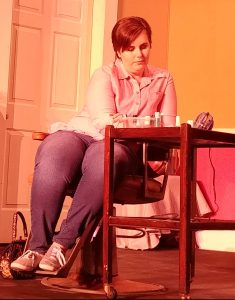 Ms. Dickerson has performed both at ACTS and Lake Charles Little Theatre on many occasions.
Ms. Dickerson has performed both at ACTS and Lake Charles Little Theatre on many occasions. Kathy Heath plays Shelby’s mom in a very challenging role of varied, and occasionally intense, often subtly repressed, emotional turmoil.
Kathy Heath plays Shelby’s mom in a very challenging role of varied, and occasionally intense, often subtly repressed, emotional turmoil.  Ms. Heath has lent her experience to both ACTS and McNeese Theatre, the latter from which she graduated with both a BA in theatre as well as a BS in Mass Com.
Ms. Heath has lent her experience to both ACTS and McNeese Theatre, the latter from which she graduated with both a BA in theatre as well as a BS in Mass Com. Joy Pace literally bursts onto the stage as Ouiser, the curmudgeonly neighbor to M’Lynn’s family. Fiercely loyal and sometimes merely fierce, her bark is always worse than her bite as she frequently steals scenes while providing comic relief.
Joy Pace literally bursts onto the stage as Ouiser, the curmudgeonly neighbor to M’Lynn’s family. Fiercely loyal and sometimes merely fierce, her bark is always worse than her bite as she frequently steals scenes while providing comic relief.  Ms. Pace has extensive experience as director for ACTS, and Artistic and Executive Director for the Itinerant Theatre, with a BA in Speech, and an MFA in directing, but this is her performing debut with ACTS Theatre.
Ms. Pace has extensive experience as director for ACTS, and Artistic and Executive Director for the Itinerant Theatre, with a BA in Speech, and an MFA in directing, but this is her performing debut with ACTS Theatre. Veronica Williams is Truvy, the energetic Eveready Bunny and the owner of the shop in which all the action takes place.
Veronica Williams is Truvy, the energetic Eveready Bunny and the owner of the shop in which all the action takes place.  This is only Ms. Williams’ second stage outing, her first as Rosie in Mama Mia! garnering her an ACTA for Best Supporting Actress.
This is only Ms. Williams’ second stage outing, her first as Rosie in Mama Mia! garnering her an ACTA for Best Supporting Actress. Taylor Novak-Tyler is Clairee, the sweet and lovable widowed dowager who provides advice and acts as a mediator and peacemaker to the sometimes tense female interactions.
Taylor Novak-Tyler is Clairee, the sweet and lovable widowed dowager who provides advice and acts as a mediator and peacemaker to the sometimes tense female interactions.  Ms. Novak-Tyler is another generous contributor to the stages both at ACTS and Lake Charles Little Theatre.
Ms. Novak-Tyler is another generous contributor to the stages both at ACTS and Lake Charles Little Theatre. Shelby Castile plays Annelle who starts as the gentle and shyly fragile newbie to town
Shelby Castile plays Annelle who starts as the gentle and shyly fragile newbie to town 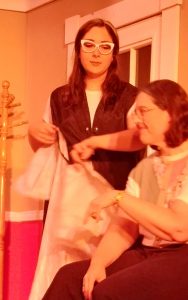 who has the greatest character arc in the show. No newbie to ACTS Theatre though, she has been on stage here many times before.
who has the greatest character arc in the show. No newbie to ACTS Theatre though, she has been on stage here many times before.

